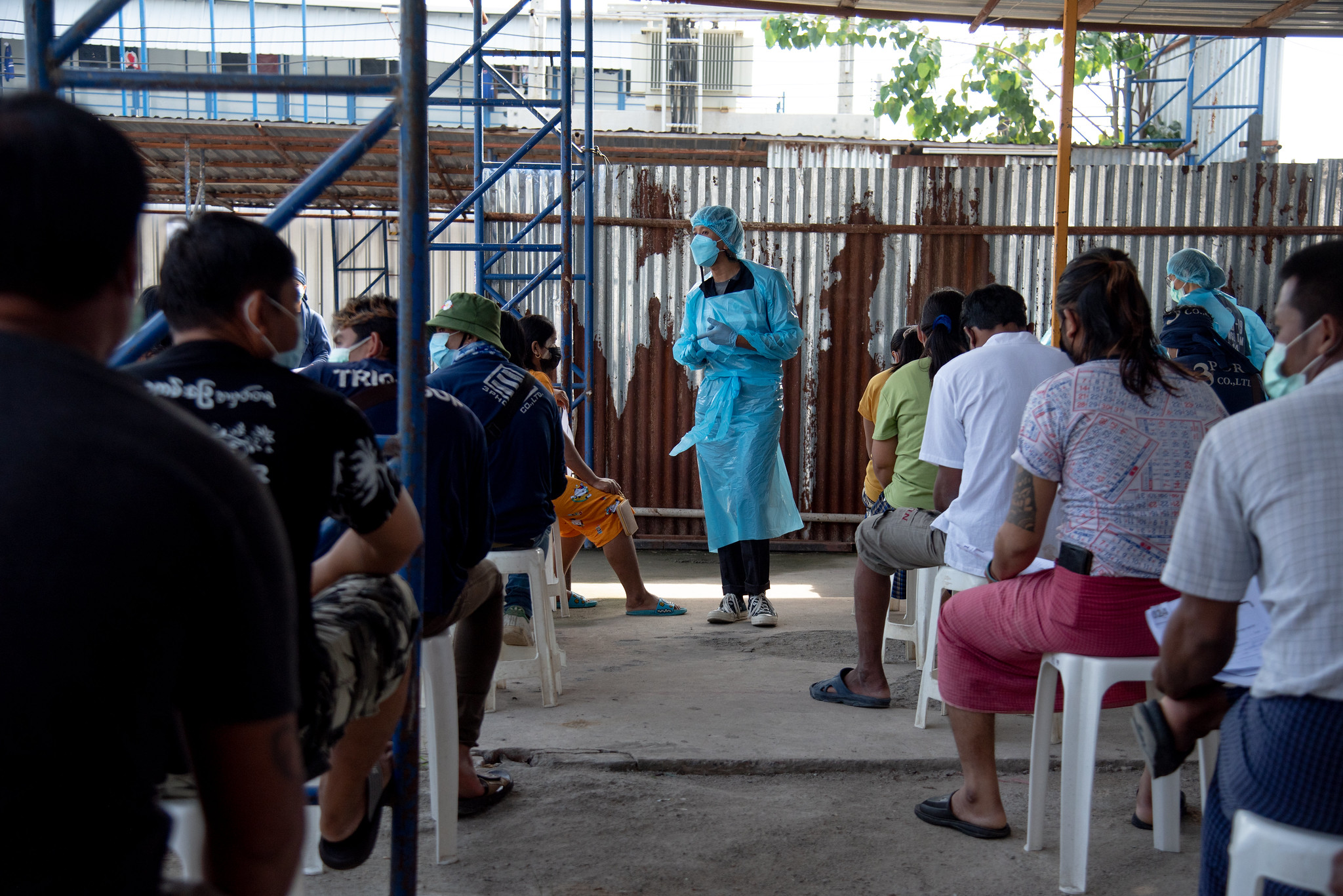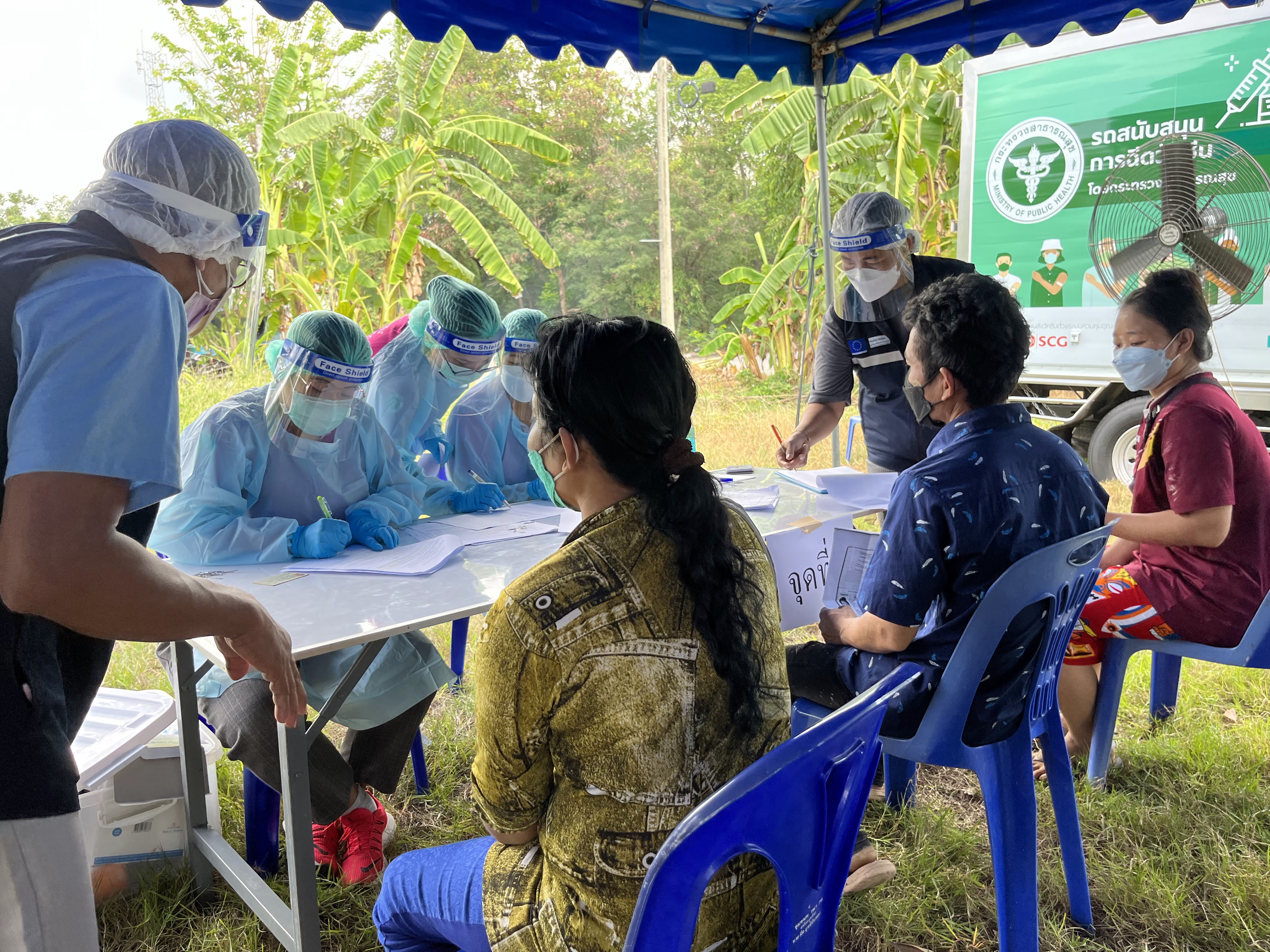COVID-19 support from the
Under the EU's South-East Asia Health Pandemic Response and Preparedness Programme, the EU funded WHO and WVF to ensure that migrant workers understood how and where to receive the necessary care and support to live through the pandemic, and to prepare the migrant communities for future health emergencies.
As of May 2022, the project trained
"COVID-19 does not distinguish between people. Everyone, including migrants, are at risk. In this project, WHO and WVF, with support from the EU, have been supporting the Royal Thai Government in reaching out to migrant workers as part of the national COVID-19 response. Innovative tools like the migrant hotline and the use of migrant health volunteers help ensure that migrant workers and their families can benefit from all the measures Thailand has put in place to combat and contain this pandemic," said Dr Jos Vandelaer, WHO Thailand Representative.
The target beneficiaries of the project are both documented and undocumented migrants, mainly in Bangkok and adjacent provinces. Many are construction workers, workers in factories, or labourers in wet markets. Migrants who are selected to join training to become migrant health volunteers often also become leaders in their communities. As requirement of the training is that they must have proficiency in their native language and Thai or English.

Kyan Thet Khaint, a migrant volunteer, gives COVID-19 information to migrant workers during a COVID-19 mass testing at a migrant labour campsite in Bang Sue, Bangkok – 31 October 2021 / © WHO/Ploy Phutpheng
Sarawut Rachasrimuang, Country Director of the World Vision Foundation of Thailand, said migrant health volunteers are vital to controlling COVID-19 in the communities where they live. "Having migrants as our health volunteers is critical. They speak the same language, so they can help to build trust and share the correct information."
The project also employs digital platforms, such as Thai Care Cloud, to link the infected migrants with an existing support system. Migrant health volunteers are trained to input information into the platform and coordinate with relevant stakeholders to ensure that migrants undergoing COVID-19 isolation receive care and support, such as relief packages and transfer to a healthcare facility if needed.
Many of these migrant health volunteers also work as hotline responders. Established by the Ministry of Public Health (MOPH) in April 2020, the COVID-19 hotline with the number 1422 has served as a trusted source of information on COVID-19 in six languages: English, Thai, Khmer, Laos, Burmese and Vietnamese. Most questions from migrants are about home isolation and vaccine certificates.
Kyan Thet Khaint, a 34-year-old migrant health volunteer from Myanmar, told WHO he is very proud to be a migrant health volunteer because he can help his fellow Burmese people. He serves as a hotline responder and provides on-site education to migrants about how to stay safe during the pandemic as well as the benefits of vaccines.

Migrant health volunteers Mr Sokoeurn Chorn, (far left), and Ms Nan Moe, (3rd right), facilitated conversations about health and vaccine history between the migrants and MOPH staff in Khmer and Burmese, respectively – 24 March 2022 / © WHO/ Amy Kummetha
The migrant health volunteers from the project also support COVID-19 activities of MOPH to facilitate migrant outreach. For example, they provided support to mobile vaccination services for construction workers by facilitating communications with MOPH health workers. Provision of translation and mediating on cultural issues is also key to helping integration at work and in the community.
As the world slowly begins to return to normalcy, the focus of the project is beginning to turn toward ‘post-COVID’ capacity building. Volunteers are trained to provide primary care services to community members, for example they are being trained to use first aid kits, thermometers and sphygmomanometers, and to perform finger prick blood tests to screen for diabetes.

Migrant health volunteers learn to measure blood pressure using a sphygmomanometer – June 2022 / © WHO
WHO and WVF have also worked together with local authorities to establish a community health centre where these volunteers can use what they learn from the project to support care for Thais and migrants, indirectly fostering relationships in their communities.
